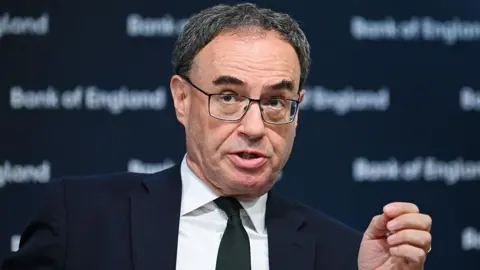In a recent statement, Andrew Bailey, the Governor of the Bank of England, emphasized the urgent need for the United Kingdom to prioritize the restoration of its trading relationship with the European Union (EU). Speaking to the BBC, he articulated a strong belief that the UK should undertake “everything we can” to enhance long-term trade ties, especially in the wake of a newly brokered deal between the UK and the United States.
Despite Bailey clarifying that, as a public official, he refrains from opinions on the Brexit debate, he acknowledged the adverse effects that Brexit has had on UK-EU trade. His comments were timely and come as the UK Government is actively engaged in discussions with EU leaders to reset the trading and security frameworks ahead of an upcoming summit later this month. This diplomatic engagement indicates a shift towards a more proactive stance on trade, particularly with the EU, which remains the UK’s largest trading partner.
The recent agreement between the US and UK showcased both countries’ commitment to fostering international trade. As part of this arrangement, the US has agreed to lower import tariffs on specific British cars and allow a limited volume of steel and aluminum to enter its market tariff-free. However, it is essential to recognize that a 10% duty will still apply to the majority of goods exported from the UK. This mixed bag of tariff adjustments has raised questions about the long-term benefits and impacts of such deals on the UK economy.
When prompted about the implications of a reconsolidated relationship with the EU on the UK’s economy and inflation, Bailey was adamant that such a relationship would yield positive results. “It would be beneficial,” he stated, highlighting the decline in goods trade between the UK and EU in recent years. The statistics are telling; as economic data reflects a growing chasm in trade levels, the need for strategies to bridge that gap has never been more critical.
Bringing attention to the EU’s significance as a trading partner, Bailey noted, “the EU is the UK’s largest trading partner,” underscoring the economic symbiosis that underpins the post-Brexit landscape. He urged the necessary stakeholders to ensure that decisions related to Brexit do not imperil long-term trade opportunities. His outlook suggests hope that the current negotiations can serve as a starting point towards mending the UK-EU relationship that has been strained since the Brexit referendum.
Bailey also stressed that the UK’s global deal-making abilities signal a critical pathway not just for bilateral relations but for global trade systems as a whole. He remarked on how current trade agreements can serve as templates for cooperation, demonstrating that trade deals are indeed feasible and instrumental for economic growth. He pointed out the often daunting landscape ahead, suggesting that through successful agreements, Britain can help to rejuvenate the international trading system.
As these discussions unfold, it is evident that the focus on trade is paramount for the UK’s economic strategy. The ideas expressed by Bailey reflect a broader consensus in the UK government about the necessity to not only repair but actively enhance trade relations post-Brexit. This proactive approach may eventually lead to more expansive agreements not only with the EU but across various global markets.
Such developments will undoubtedly shape the economic landscape, influencing everything from inflation rates to overall economic growth. As the UK government continues its negotiations and seeks to reconnect with the EU and other international partners, the emphasis will remain on establishing a trade framework that not only stabilizes current economic conditions but also fosters growth for years to come. The forthcoming weeks will be telling in determining how effectively these strategies are implemented and what long-term impact they will have on the UK’s place in the global trading arena.



